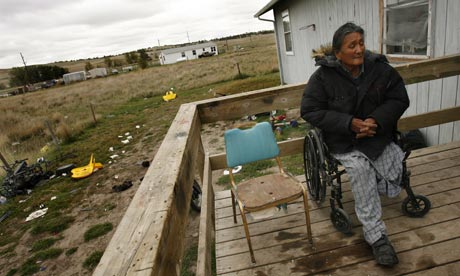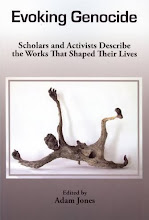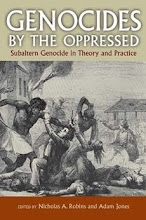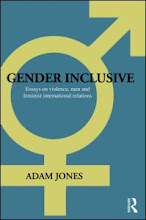 |
| "A Native American at his home on Pine Ridge Reservation, South Dakota, which has some of the US's poorest living conditions." (Jennifer Brown/Star Ledger/Corbis) |
By Chris McGreal
The Guardian, May 4, 2012
"A United Nations investigator probing discrimination against Native Americans has called on the US government to return some of the land stolen from Indian tribes as a step toward combatting continuing and systemic racial discrimination. James Anaya, the UN special rapporteur on the rights of indigenous peoples, said no member of the US Congress would meet him as he investigated the part played by the government in the considerable difficulties faced by Indian tribes. Anaya said that in nearly two weeks of visiting Indian reservations, indigenous communities in Alaska and Hawaii, and Native Americans now living in cities, he encountered people who suffered a history of dispossession of their lands and resources, the breakdown of their societies and 'numerous instances of outright brutality, all grounded on racial discrimination'. 'It's a racial discrimination that they feel is both systemic and also specific instances of ongoing discrimination that is felt at the individual level,' he said. Anaya said racism extended from the broad relationship between federal or state governments and tribes down to local issues such as education.
'For example, with the treatment of children in schools both by their peers and by teachers as well as the educational system itself; the way native Americans and indigenous peoples are reflected in the school curriculum and teaching,' he said. 'And discrimination in the sense of the invisibility of Native Americans in the country overall that often is reflected in the popular media. The idea that is often projected through the mainstream media and among public figures that indigenous peoples are either gone or as a group are insignificant or that they're out to get benefits in terms of handouts, or their communities and cultures are reduced to casinos, which are just flatly wrong.' Close to a million people live on the US's 310 Native American reservations. Some tribes have done well from a boom in casinos on reservations but most have not. Anaya visited an Oglala Sioux reservation where the per capita income is around $7,000 a year, less than one-sixth of the national average, and life expectancy is about 50 years. The two Sioux reservations in South Dakota -- Rosebud and Pine Ridge -- have some of the country's poorest living conditions, including mass unemployment and the highest suicide rate in the western hemisphere with an epidemic of teenagers killing themselves. 'You can see they're in a somewhat precarious situation in terms of their basic existence and the stability of their communities given that precarious land tenure situation. It's not like they have large fisheries as a resource base to sustain them. In basic economic terms it's a very difficult situation. You have upwards of 70% unemployment on the reservation and all kinds of social ills accompanying that. Very tough conditions,' he said. Anaya said Rosebud is an example where returning land taken by the US government could improve a tribe's fortunes as well as contribute to a 'process of reconciliation'. [...]"














No comments:
Post a Comment
Please be constructive in your comments. - AJ